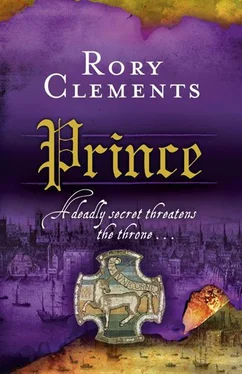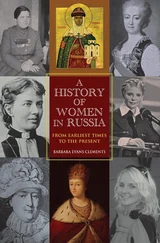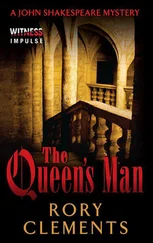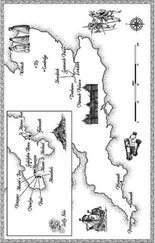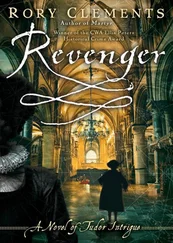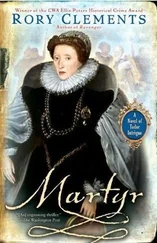Rory Clements - Prince
Здесь есть возможность читать онлайн «Rory Clements - Prince» весь текст электронной книги совершенно бесплатно (целиком полную версию без сокращений). В некоторых случаях можно слушать аудио, скачать через торрент в формате fb2 и присутствует краткое содержание. Жанр: Исторический детектив, на английском языке. Описание произведения, (предисловие) а так же отзывы посетителей доступны на портале библиотеки ЛибКат.
- Название:Prince
- Автор:
- Жанр:
- Год:неизвестен
- ISBN:нет данных
- Рейтинг книги:5 / 5. Голосов: 1
-
Избранное:Добавить в избранное
- Отзывы:
-
Ваша оценка:
- 100
- 1
- 2
- 3
- 4
- 5
Prince: краткое содержание, описание и аннотация
Предлагаем к чтению аннотацию, описание, краткое содержание или предисловие (зависит от того, что написал сам автор книги «Prince»). Если вы не нашли необходимую информацию о книге — напишите в комментариях, мы постараемся отыскать её.
Prince — читать онлайн бесплатно полную книгу (весь текст) целиком
Ниже представлен текст книги, разбитый по страницам. Система сохранения места последней прочитанной страницы, позволяет с удобством читать онлайн бесплатно книгу «Prince», без необходимости каждый раз заново искать на чём Вы остановились. Поставьте закладку, и сможете в любой момент перейти на страницу, на которой закончили чтение.
Интервал:
Закладка:
Once more, Cecil ignored Shakespeare and addressed Mills. ‘Who, Frank? Who in this city — Marlowe apart — would harm those who have sought refuge here? You called these strangers “our friends” — and they are friends of England. They bring skills and wealth with them at a time of great need. They help us open new trade routes. They help fill the war chest. And, above all, they abhor the Pope.’
Mills consulted a paper on the table in front of him. He smoothed it flat with the palm of his hand. ‘The welcome offered by the Crown and Council is easily understood, but it is worth looking at this from the perspective of the merchants and the common man. Consider this,’ he said, indicating the paper. ‘It is a summary of the recent Return of Strangers, dated May the fourth — four weeks ago. The aldermen and constables of each of the twenty-six wards have been diligent in their searches and have noted the names of more than seven thousand refugees and their children. We must assume, however, that the true figure is considerably higher. Many strangers keep others illegally about their houses as servants and apprentices. They hide when the word gets about that searchers are in the area. It would not be unreasonable to suggest that a true figure of fifteen or even twenty thousand incomers now live here.’
‘Out of perhaps two hundred thousand… possibly one in ten.’
‘Indeed, Sir Robert. And they make their presence felt, for they have a wide variety of trades and crafts. They bring skills to produce fine lace, glass, shoes, starch, hats and many more items. Their produce is much admired and desired by the English — yet they resent them, too. It cannot be denied that in some cases they do take trade away from their English neighbours. And it is true that they often keep themselves aloof and do not learn to speak English. Many English merchants, shopkeepers and craftsmen hate them. They fear their livelihoods are threatened and feel that parts of the city — Blackfriars, Billingsgate, St Martin le Grand and, further afield, Southwark — are become strange lands where a very Babel of languages is spoken.’
Cecil stopped pacing. He drew up the chair at the head of the table where Lee had recently been positioned, and sat down. He leaned forward purposefully. ‘Is there any evidence that Englishmen are joining together against the refugees?’ he demanded. ‘Have there been illegal gatherings? Will there be mobs in the street or insurrection?’ Cecil took a draught of ale and wiped a finger across his thin lip.
Mills hesitated.
‘Well?’
‘I cannot give assurances that there will be no riots; no man could. We know that the apprentices, when they are in drink, often cast stones at those they take to be refugees. But I would say this: there is no evidence that such events are organised.’
‘Somebody is organising gunpowder, however. It is a short step from there to insurrection.’
‘As yet we have no suspects,’ Mills said dolefully. ‘Nowhere to start.’
Shakespeare sat in irritated silence. Cecil turned to him.
‘John?’
‘You know my feelings, Sir Robert.’
‘Yes, I do. And I am mighty confused by them. You do not believe Marlowe wrote the outrage — and yet you think you should waste time and effort inquiring further into his death. I am surprised a man of your wit does not see the contradiction here. Furthermore, you talk of Poley: are you suggesting Robert Poley was somehow involved in this gunpowder incident? My understanding is that it occurred within a short time of Marlowe’s inquest. Poley was there as a witness, was he not? And Topcliffe was there to report back to Her Majesty. How could either man have been in two places at once?’
Cecil’s words were sharp, but Shakespeare would not roll over so easily. ‘No,’ he said, shaking his head, ‘that is not it. I have not accused Poley or Topcliffe of complicity in the gunpowder intrigue. My point is that Marlowe’s death was not straightforward. For one thing, there was the time discrepancy…’
For a moment, he wondered whether he had gone too far to speak to a senior minister thus. The moment passed. Nothing he could say would ever shock or dismay Cecil; that was why he worked for him — because he could talk to him man to man, he could disagree with him where others in power would expect to be fawned upon by obsequious underlings.
Cecil sat back from the table. ‘Mr Shakespeare,’ he said, his voice quieter, more intense. ‘John… the discrepancy over the time of Christopher Marlowe’s death is irrelevant. He still died from a blow of a dagger struck by Ingram Frizer. Even Searcher Peace agrees with that. And who are Poley, Frizer and Skeres anyway? Just the sort of low company that Marlowe always kept. There is no mystery here. He is buried. That is the end of it.’ Cecil turned back to Mills. ‘Now then, Frank, let us talk of the other faction that might have ignited the powder, if you please.’
Mills affected a solemn countenance. ‘The Spanish, Sir Robert. They are the ones who stand to gain most from unrest in London. Even now they are building up the war fleet that God and the weather saved us from last year. Philip and his Romish toad-eater in the Vatican are the ones that would happily wreak bloodshed upon our Protestant refugee friends here in London…’
‘John, the intelligence from Spain, if you will.’
Shakespeare smiled grimly. Cecil would not be moved on this. Marlowe was dead and that was it. He unfurled the paper on the table. ‘This is from Anthony Standen, sent as he travelled back from Spain through France. He writes, “The fleets in Cadiz and Lisbon are fitted for a surprise attack given fair weather and an opportunity. They plan to have Brest soon. They will not wallow as in ’88.”’ Shakespeare did not mention the intended recipient of the message, the Earl of Essex — Cecil’s great rival. The message had been intercepted from Essex’s messenger by Cecil’s searchers at Dover.
‘Given an opportunity,’ Cecil echoed. ‘That is just what we must not give them. There are threats enough.’
Indeed, Cecil had rehearsed the perils recently for the House of Commons. There were, he declared in a speech of eloquence and drama, dangers on all fronts.
Shakespeare had heard the speech — and the plea for tax revenues — and had been impressed. The way Cecil spoke, he made it sound as if Spain was closing a net around England. His words, calm and precise, instilled in every member of the House both fury and fear, so that none should doubt the need to dig deep into their own coffers. He itemised the threats from west, east, north and south.
In the west, Sir John Norris’s expeditionary force to Brittany was hard-pressed against the Spanish army of General Don Juan d’Aguila. Money, men and supplies were needed if Norris was to prevent the enemy taking the deep-water port of Brest on the western tip of that nose of land. Brest was a harbour so large it could safely have concealed the whole armada of 1588. If it should fall, Cecil proclaimed ominously, the Channel would be exposed to a new Spanish fleet, complete with invasion barges. Striking from Brittany, the whole of southern England would be at Spain’s mercy. Such an armada would start with fresh supplies and could be resupplied with victuals and ammunition as it drove eastwards towards Kent and London. In two years of campaigning in Brittany, Norris’s situation had become increasingly parlous. His poor band of troops was heavily depleted by disease, desertions, the wounding defeat at Craon and a devastating ambush at Ambrieres. Now there was hard and bloody fighting at Laval. Norris needed help, and that cost money.
In the east, the Catholic king of Poland, Sigismund, had done a deal with Spain to disrupt English trade. If this was carried through, there was a real risk that some vessels of the Navy Royal would have to be diverted from their crucial role of protecting the western approaches and the narrow seas.
Читать дальшеИнтервал:
Закладка:
Похожие книги на «Prince»
Представляем Вашему вниманию похожие книги на «Prince» списком для выбора. Мы отобрали схожую по названию и смыслу литературу в надежде предоставить читателям больше вариантов отыскать новые, интересные, ещё непрочитанные произведения.
Обсуждение, отзывы о книге «Prince» и просто собственные мнения читателей. Оставьте ваши комментарии, напишите, что Вы думаете о произведении, его смысле или главных героях. Укажите что конкретно понравилось, а что нет, и почему Вы так считаете.
